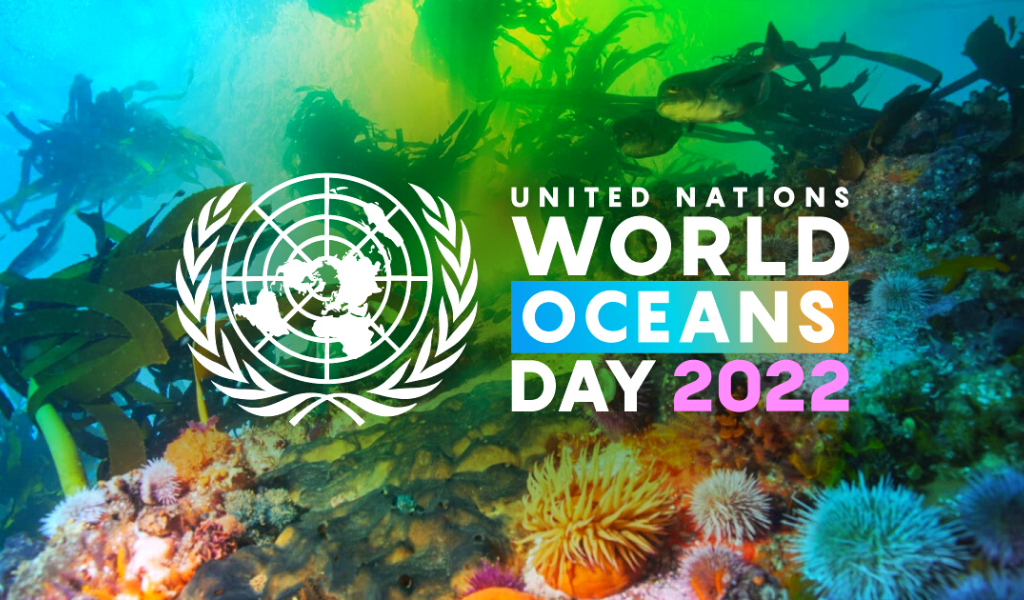
Our Oceans Are At Risk, What Can We Do To Save It?
The ocean produces at least half of the world's oxygen, is home to most of the world's biodiversity, and provides protein and nutrition to over 3 billion people and is essential to maintain a livable planet. However, it is under threat from all sides, including coral bleaching due to rising temperatures, overfishing, and increasing plastic pollution. Here are some things you can do as part of the UN Decade of Ocean Science to reduce your impact and help rebuild the oceans health.
Minimize single-use plastics! Humans have created 8.3 billion metric tons of plastic, half of which has been produced in the last 13 years. That's one tonne of plastic for every person on the planet. Every year, between 5 million and 12 million metric tonnes of plastic waste enter the ocean. Plastic can be found in all parts of the ocean, including the Mariana Trench's vast depths. They've even made their way into our bloodstream! Only a small percentage of plastics are recycled hence making it a lot more dangerous.
Try to buy sustainably sourced seafood! Seafood provides 17% of the world's animal protein, and approximately 35% of the world's fish stocks are overfished. The fishing industry must improve sustainable and transparent seafood supply chains while also enacting robust compliance, monitoring, and enforcement measures. You can help by rewarding producers who are responsible.
[Photo: Tim Ngo – Flickr]
Buy Organic Produce! Buy organic produce to help reduce the amount of industrial fertilizer and pesticides that end up in the ocean. More than half of the world's population now relies on nitrogen and phosphorus fertilizers to feed themselves, but most of it is wasted by crops. Every year, about 10 million metric tons of nitrogen enter the ocean, with 90% of it coming from agricultural runoff and untreated wastewater, resulting in excessive algae growth and "dead zones."
Choose hotels and resorts that have a higher sustainability rating! Tourism accounts for half of the national income in some coastal countries and small island developing states. More countries are defining their "blue economy" vision, which includes the sustainable use of ocean resources for economic growth and jobs, as well as social and financial inclusion, with a focus on ocean ecosystem preservation and restoration. Give preference to tourism operators who practice sound waste management and source seafood and other products from sustainable sources. Consider going to a marine protected area and supporting it.
Minimize your carbon footprint! Reduced driving and flying, as well as the purchase of energy-efficient appliances and the use of fewer "throwaway" products, are all good ways to cut carbon dioxide emissions. CO2 pollutes the ocean as well as the air; it causes seawater to become more acidic, which is harmful to many species, especially shelled animals.
[Photo: Parley]
Encourage your communities to do more for our oceans! The investment in Sustainable Development Goal 14 – life below water – is the lowest of the 17 SDGs. Aid to ocean restoration and protection has averaged only US$1.3 billion per year over the last ten years. SDG 14 has a lot of lofty goals. By 2020, none of the goals had been met. While some progress has been made, there is still much work to be done if the ocean SDG agenda is to be met by 2030. Governments can help by holding producers accountable for the long-term effects of their products, phasing out destructive fisheries subsidies, and meeting your country's climate change commitments under the Paris Agreement.
Get involved in Beach cleanups with your community! Enjoy a day at the beach with your friends while also cleaning up! The Ocean Decade gives us all the chance to design and deliver the science we need for a healthy ocean that benefits everyone, from natural and social scientists to Indigenous and local knowledge holders.
Prefer locally sourced seafood rather than packed ones. Fishing and aquaculture employ approximately 59.5 million people, the vast majority of whom live in Asia. The fishing industry requires long-term, transparent supply chains. And a level playing field for small-scale fishermen, who are frequently at a disadvantage when it comes to accessing industrial competitors' markets and resources. Support your neighborhood fishermen and eat the freshest seafood available!
[Photo: volunteeringjourneys.com]
Contribute financially and volunteer with NGO’s doing valuable work for our world! The world cannot afford to continue to allow the ocean's health to deteriorate. Without immediate action, the ocean's ability to sustain life will deteriorate, posing a threat to the global economy as well as billions of people's lives and livelihoods. Many non-governmental organizations, civil society groups, and other organizations are working to protect the ocean in innovative ways; learn about them and support the ones you think are doing the best.
Educate yourself and educate others about what we can do to contribute. The ocean is critical to our species' survival. The "blue economy" also contributes $2.3 trillion to the global economy each year. The ocean's GDP would be the fifth highest if it were a country. Despite this, the vast majority of the ocean remains unmapped—we know a lot more about Mars' surface than we do about what happens below the surface. Ocean literacy is critical for bringing about institutional and individual change for young people, as well as industry and policymakers.
[Cover: UNDP]